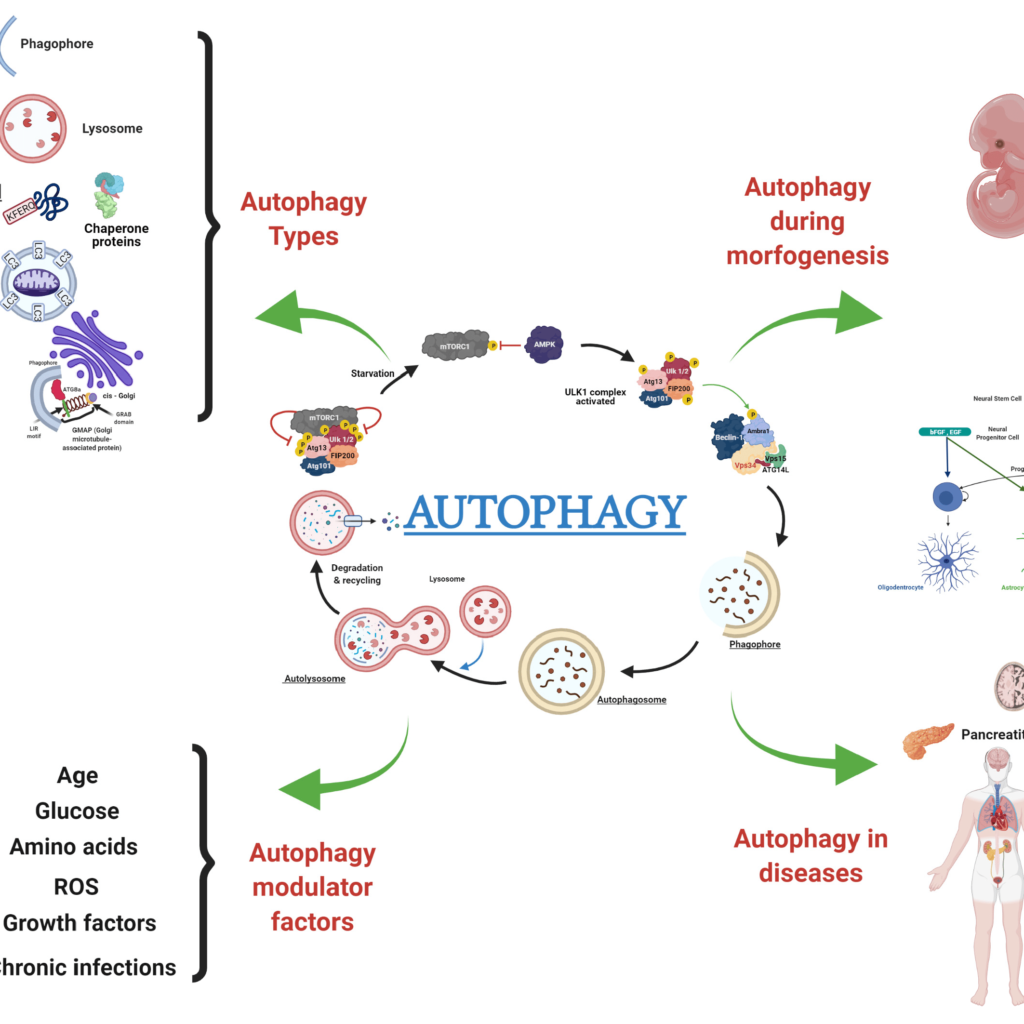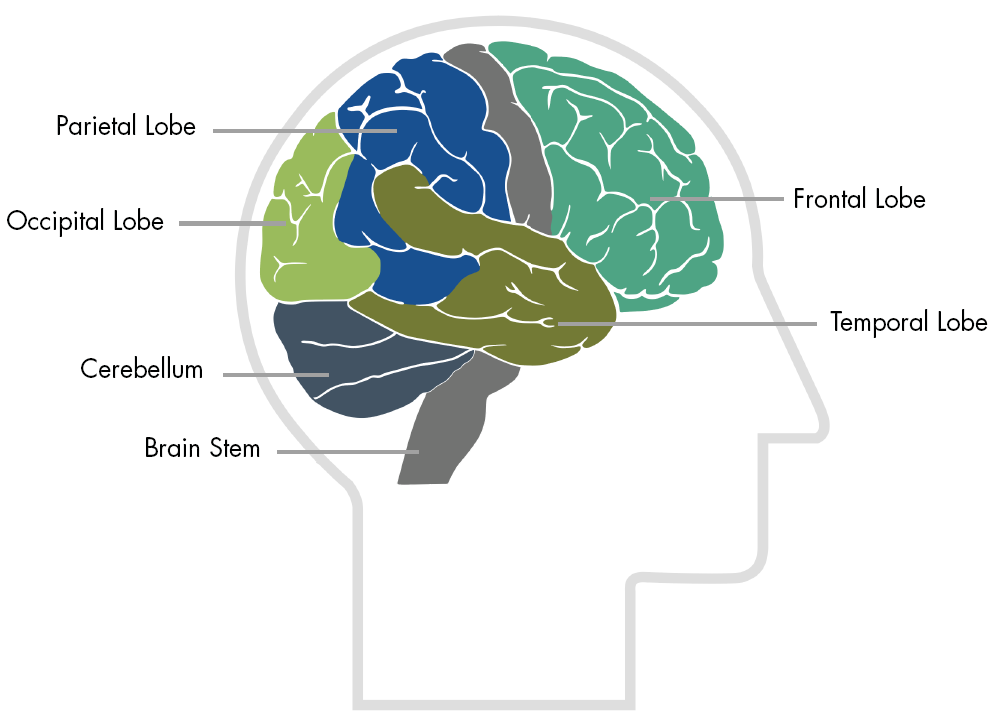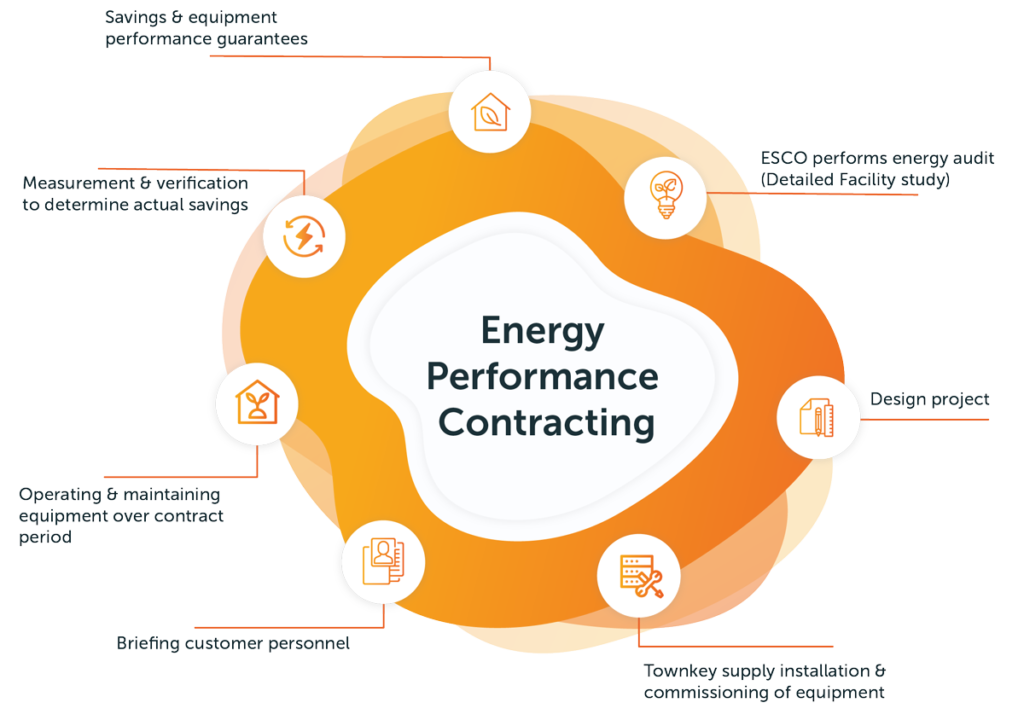Intermittent Fasting: Understanding the Trend and the Benefits of a Healthy Eating Plan
In recent years, intermittent fasting has emerged as a prominent strategy for weight loss and health improvement, garnering widespread attention and acclaim. Advocates of intermittent fasting assert its ability to boost metabolism, facilitate weight loss, and enhance overall well-being. However, it’s crucial to grasp the fundamentals of intermittent fasting, including its potential side effects, and consider why embracing a balanced and nutritious eating regimen might offer more sustainable benefits for long-term health.
Intermittent fasting involves cycling between periods of eating and fasting, with various fasting protocols ranging from alternate-day fasting to time-restricted eating windows. While intermittent fasting may yield promising results in terms of weight management and metabolic health, it’s essential to approach it with caution and awareness of individual needs and limitations.
Despite its potential benefits, intermittent fasting may not be suitable for everyone and can lead to adverse effects such as increased hunger, fatigue, and mood swings. Moreover, relying solely on intermittent fasting without prioritising nutrient-dense foods and balanced meals may result in nutrient deficiencies and compromised overall health.
A balanced and nutritious eating plan, on the other hand, emphasises the importance of consuming a variety of nutrient-rich foods, including fruits, vegetables, lean proteins, whole grains, and healthy fats. Such an approach provides essential nutrients, promotes satiety, and supports sustained energy levels throughout the day.
In conclusion, while intermittent fasting may offer certain benefits for weight management and health improvement, it’s essential to approach it mindfully and consider its potential drawbacks. Adopting a balanced and nutritious eating plan, tailored to individual needs and preferences, remains a more sustainable approach to achieving optimal health and well-being in the long run.
What is Intermittent Fasting?
Intermittent fasting is a dietary approach that involves alternating periods of eating with periods of fasting. Unlike traditional diets that focus on what foods to eat or restrict calorie intake, intermittent fasting primarily regulates when to eat. There are several methods of intermittent fasting, but they all involve cycling between periods of eating and fasting. Some common intermittent fasting protocols include:
1. **Time-Restricted Eating:** This method involves restricting your daily eating window to a specific timeframe, such as 8 hours, and fasting for the remaining 16 hours of the day. For example, you might eat all your meals between 12:00 pm and 8:00 pm and fast for the rest of the day.
2. **Alternate-Day Fasting:** With this approach, you alternate between fasting days, where you consume little to no calories, and regular eating days, where you eat normally. On fasting days, some people may consume a small amount of calories, typically around 500-600 calories, while others may choose to consume only water or non-caloric beverages.
3. **5:2 Diet:** In this method, you eat normally for five days of the week and then restrict calorie intake to about 500-600 calories for two non-consecutive days of the week.
4. **Eat-Stop-Eat:** With this approach, you fast for a full 24 hours once or twice a week, consuming no calories during the fasting period. For example, you might fast from dinner one day until dinner the next day.
Intermittent fasting is believed to promote weight loss and improve metabolic health by inducing changes in hormone levels and cellular processes. During fasting periods, the body switches from using glucose as its primary source of energy to burning stored fat for fuel, leading to fat loss. Additionally, intermittent fasting may have other health benefits, such as reducing inflammation, improving insulin sensitivity, and supporting cellular repair processes.
However, it’s important to note that intermittent fasting may not be suitable for everyone, and individuals with certain medical conditions or dietary needs should consult with a healthcare professional before starting any fasting regimen. Additionally, while intermittent fasting can be an effective tool for weight loss and health improvement, it’s essential to focus on consuming nutrient-dense foods and maintaining a balanced diet during eating periods to support overall health and well-being.

Benefits of Intermittent Fasting:
Intermittent fasting has gained popularity due to its potential benefits for both physical and mental health. Some of the key benefits of intermittent fasting include:
1. **Weight Loss:** Intermittent fasting can help promote weight loss by restricting calorie intake and increasing fat burning. During fasting periods, the body utilises stored fat for energy, leading to a reduction in body fat percentage over time.
2. **Improved Metabolic Health:** Intermittent fasting has been shown to improve various markers of metabolic health, including insulin sensitivity, blood sugar levels, and cholesterol levels. These improvements may reduce the risk of type 2 diabetes, heart disease, and other metabolic disorders.
3. **Increased Autophagy:** Autophagy is a cellular process that involves the removal of damaged cells and cellular components. Intermittent fasting has been found to stimulate autophagy, which may help protect against age-related diseases and promote cellular repair and regeneration.
4. **Enhanced Brain Function:** Intermittent fasting may have cognitive benefits, including improved focus, clarity, and memory. Some studies suggest that fasting can increase the production of brain-derived neurotrophic factor (BDNF), a protein that supports brain health and may reduce the risk of neurodegenerative diseases like Alzheimer’s and Parkinson’s.
5. **Reduced Inflammation:** Chronic inflammation is linked to various health problems, including heart disease, cancer, and autoimmune disorders. Intermittent fasting has been shown to reduce markers of inflammation in the body, which may help lower the risk of inflammation-related diseases.
6. **Longevity:** Some animal studies suggest that intermittent fasting may increase lifespan and promote longevity by activating certain genetic pathways associated with longevity and ageing. While more research is needed to confirm these findings in humans, intermittent fasting shows promise as a potential anti-aging intervention.
Overall, intermittent fasting offers a range of potential health benefits, from weight loss and improved metabolic health to enhanced brain function and longevity. However, it’s important to approach intermittent fasting safely and responsibly, and individuals with certain medical conditions or dietary needs should consult with a healthcare professional before starting any fasting regimen.
Weight Loss
Intermittent fasting has become increasingly popular for its potential to facilitate weight loss. One of the primary mechanisms behind this is its ability to naturally reduce calorie intake by limiting the time available for eating.
By implementing intermittent fasting, individuals typically restrict their eating window, which naturally leads to consuming fewer calories throughout the day. This reduction in overall calorie intake creates a calorie deficit, which is essential for weight loss.
Moreover, intermittent fasting has been found to enhance fat metabolism and preserve lean muscle mass. Unlike traditional calorie-restricted diets that may lead to muscle loss along with fat loss, intermittent fasting helps prioritise fat as a fuel source while preserving muscle tissue. This can result in more significant fat loss and improved body composition over time.
The combination of reduced calorie intake, enhanced fat metabolism, and preserved muscle mass makes intermittent fasting an effective strategy for individuals seeking to manage their weight and improve their overall body composition. However, it’s important to approach intermittent fasting safely and sustainably, ensuring that nutritional needs are met during eating periods and consulting with a healthcare professional if necessary.

Insulin Sensitivity
Indeed, intermittent fasting has demonstrated promising effects on insulin sensitivity, making it a valuable approach for individuals at risk of or diagnosed with type 2 diabetes. By incorporating fasting periods into their routine, individuals may experience improvements in how their bodies respond to insulin, a hormone crucial for regulating blood sugar levels.
During fasting periods, the body’s insulin levels decrease, allowing cells to become more sensitive to insulin’s effects. This enhanced insulin sensitivity facilitates better glucose uptake by cells, thereby helping to regulate blood sugar levels more effectively.
Furthermore, intermittent fasting may aid in reducing the risk of insulin resistance, a condition where cells become less responsive to insulin’s actions. By promoting optimal insulin sensitivity, intermittent fasting can mitigate the development of insulin resistance, thereby lowering the risk of type 2 diabetes.
Overall, the ability of intermittent fasting to enhance insulin sensitivity and regulate blood sugar levels makes it a promising strategy for managing and preventing type 2 diabetes. However, it’s essential for individuals considering intermittent fasting to consult with a healthcare professional, especially if they have diabetes or other medical conditions, to ensure that it is safe and suitable for their individual needs.

Autophagy
Absolutely, intermittent fasting has been linked to increased autophagy, a cellular process crucial for maintaining cellular health and function. Autophagy involves the removal of damaged or dysfunctional cells and cellular components, promoting cellular repair and regeneration.
The stimulation of autophagy through intermittent fasting is believed to contribute to various health benefits, including improved longevity and reduced risk of age-related diseases. By clearing out cellular waste and damaged components, autophagy helps optimise cellular function and may slow down the ageing process.
Furthermore, intermittent fasting’s positive impact on metabolic health, such as improved insulin sensitivity and reduced inflammation, can have far-reaching effects on overall health. By promoting metabolic efficiency and reducing the risk of chronic diseases such as type 2 diabetes, cardiovascular disease, and certain cancers, intermittent fasting supports overall well-being and longevity.
In essence, intermittent fasting’s ability to enhance autophagy and metabolic health offers potential anti-aging effects and contributes to overall cellular health. However, more research is needed to fully understand the mechanisms underlying these benefits and their implications for human health.

Brain Function
Indeed, intermittent fasting has garnered attention for its potential neuroprotective effects and its ability to enhance brain function. One mechanism through which intermittent fasting may exert its cognitive benefits is by increasing the production of brain-derived neurotrophic factor (BDNF).
BDNF is a protein that plays a crucial role in the growth, maintenance, and plasticity of neurons. It supports neuronal survival and enhances synaptic plasticity, which is vital for learning and memory processes. Studies have shown that intermittent fasting can elevate BDNF levels in the brain, thereby promoting cognitive function and neuroprotection.
Moreover, intermittent fasting has been found to reduce inflammation and oxidative stress in the brain, both of which are implicated in the development of neurodegenerative diseases and age-related cognitive decline. By mitigating inflammation and oxidative stress, intermittent fasting may help safeguard against cognitive impairment and age-related neurodegenerative conditions such as Alzheimer’s and Parkinson’s disease.
Overall, the potential neuroprotective effects of intermittent fasting, including increased BDNF production, reduced inflammation, and oxidative stress, highlight its significance in promoting brain health and preserving cognitive function. However, further research is necessary to fully understand the mechanisms underlying these benefits and their implications for neurological health.

Possible Side Effects of Intermittent Fasting
While intermittent fasting can offer various health benefits, it’s essential to be aware of potential side effects that may arise, particularly as individuals adapt to this eating pattern. These side effects can vary among individuals and may depend on factors such as the specific fasting protocol followed and individual health status. Some common side effects of intermittent fasting include:
1. **Hunger and Irritability:** During fasting periods, some individuals may experience increased feelings of hunger and irritability as their bodies adjust to reduced calorie intake. This can be especially challenging initially but often improves over time as the body adapts to the fasting schedule.
2. **Fatigue and Weakness:** Restricting food intake for extended periods may lead to feelings of fatigue and weakness, particularly during fasting periods. This can be due to low blood sugar levels or depletion of glycogen stores, the body’s primary source of energy.
3. **Headaches:** Some individuals may experience headaches, especially during the initial stages of intermittent fasting, as their bodies adapt to changes in eating patterns and energy metabolism. Staying hydrated and ensuring adequate electrolyte intake may help alleviate headaches.
4. **Dizziness and Lightheadedness:** Fasting can cause fluctuations in blood sugar levels, which may lead to dizziness or lightheadedness, particularly when standing up quickly or engaging in physical activity. Ensuring adequate hydration and consuming electrolyte-rich foods or beverages may help prevent these symptoms.
5. **Difficulty Concentrating:** Fasting periods may affect cognitive function and concentration levels in some individuals, particularly during the initial stages of adaptation. This may be due to changes in blood sugar levels and brain fuel availability. Adequate hydration and consuming nutrient-dense foods during eating periods can help support cognitive function.
6. **Disrupted Sleep:** Some individuals may experience disruptions in sleep patterns, such as difficulty falling asleep or staying asleep, particularly if fasting periods coincide with bedtime. Establishing a consistent sleep schedule and avoiding caffeine and stimulating activities close to bedtime may help mitigate sleep disturbances.
It’s important to note that these side effects are typically transient and often diminish as the body adjusts to the fasting regimen. However, individuals with certain medical conditions, such as diabetes or eating disorders, may be at higher risk of experiencing adverse effects from intermittent fasting and should consult with a healthcare professional before adopting this eating pattern. Additionally, it’s essential to prioritise nutrient-dense foods and maintain hydration during eating periods to support overall health and well-being while intermittent fasting.
Hunger and Cravings
Extended periods of fasting can indeed present challenges, particularly in terms of managing hunger and cravings. When individuals fast for prolonged periods, they may experience increased hunger and cravings, making it difficult to adhere to the fasting window. This can potentially lead to overeating during the eating periods, offsetting the intended calorie restriction and hindering weight loss goals.
Moreover, prolonged fasting periods can trigger physiological responses in the body, including increased production of ghrelin, often referred to as the hunger hormone. Elevated levels of ghrelin can intensify feelings of hunger and discomfort, making it harder to sustain fasting periods.
Additionally, intermittent fasting may result in fluctuations in blood sugar levels and insulin levels, leading to spikes and crashes. Extended periods of fasting followed by large meals during eating periods can cause rapid increases in blood sugar levels, followed by subsequent drops. These fluctuations can contribute to feelings of fatigue, irritability, and difficulty concentrating.
To mitigate these challenges, individuals practising intermittent fasting should focus on adopting a balanced approach to eating during their eating periods. This includes choosing nutrient-dense foods that provide sustained energy, managing portion sizes to prevent overeating, and staying hydrated throughout the day. Additionally, incorporating strategies to manage hunger and cravings, such as consuming fibre-rich foods, staying busy and distracted, and practising mindful eating, can help support adherence to the fasting schedule.
Overall, while intermittent fasting can offer various health benefits, it’s essential to be mindful of potential challenges and adopt strategies to address them effectively. Listening to your body’s cues, prioritising nutrient-dense foods, and seeking support from healthcare professionals or nutrition experts can help optimise the experience of intermittent fasting and promote long-term success.

Disrupted Eating Patterns
Absolutely, intermittent fasting can indeed disrupt social eating patterns and mealtime routines, which may pose challenges for individuals seeking to adhere to a fasting regimen while maintaining social connections. Mealtime gatherings with family and friends are often centred around shared meals, and fasting may limit one’s ability to participate fully in these social interactions.
Feeling excluded from social events due to fasting can lead to feelings of isolation and may impact overall well-being. Additionally, navigating social situations while fasting can be challenging, as individuals may feel pressure to explain or justify their dietary choices to others.
Moreover, intermittent fasting may not be sustainable in the long run for some individuals, particularly if it significantly disrupts social relationships or causes distress in social situations. The ability to enjoy meals with loved ones and partake in social gatherings is an essential aspect of overall health and well-being, and any dietary approach that compromises these aspects may not be suitable for everyone.
To address these challenges, individuals practising intermittent fasting may need to find ways to adapt their fasting schedule to accommodate social obligations or consider alternative approaches to fasting that allow for greater flexibility. For example, adjusting fasting windows to align with social events or opting for less restrictive fasting protocols that still offer health benefits without severely limiting mealtime flexibility.
Ultimately, it’s essential for individuals to find a dietary approach that not only aligns with their health goals but also supports their social and emotional needs. Open communication with friends and family about dietary choices and preferences can help foster understanding and acceptance, reducing feelings of isolation and promoting a more sustainable approach to intermittent fasting.
Nutrient Deficiencies
Absolutely, restricting food intake for extended periods as part of intermittent fasting may increase the risk of nutrient deficiencies if individuals do not prioritise nutrient-dense foods during their eating windows. Since there is a limited time frame for consuming meals, it’s crucial for individuals practising intermittent fasting to focus on selecting foods that provide essential nutrients to meet their body’s needs.
Nutrient-dense foods, such as fruits, vegetables, lean proteins, whole grains, and healthy fats, should be prioritised to ensure individuals obtain adequate vitamins, minerals, and other essential nutrients. Including a variety of colourful fruits and vegetables can help ensure a wide range of vitamins and antioxidants are consumed.
Moreover, individuals practising intermittent fasting should pay attention to their macronutrient intake, ensuring they consume sufficient protein, carbohydrates, and fats to support overall health and well-being. Protein-rich foods are particularly important for supporting muscle maintenance and repair, while carbohydrates provide energy for physical activity and cognitive function. Healthy fats, such as those found in nuts, seeds, avocados, and fatty fish, are essential for hormone production, brain health, and nutrient absorption.
In addition to focusing on nutrient-dense foods, individuals practising intermittent fasting should also pay attention to hydration and ensure they drink an adequate amount of water throughout the day. Proper hydration is essential for overall health and helps support various bodily functions, including digestion, nutrient transport, and temperature regulation.
By prioritising nutrient-dense foods and staying hydrated during eating windows, individuals can mitigate the risk of nutrient deficiencies while practising intermittent fasting. It’s also essential to listen to your body’s hunger and fullness cues and adjust your eating patterns as needed to ensure your nutritional needs are met. If necessary, consulting with a healthcare professional or registered dietitian can provide personalised guidance and support to optimise nutritional intake while intermittent fasting.
Energy and Performance
Absolutely, reduced energy levels and declines in physical and mental performance can be common experiences for some individuals during fasting periods. This can impact various aspects of daily life, including daily activities, exercise routines, and cognitive function.
When the body is in a fasting state, energy reserves become depleted, leading to feelings of fatigue and lethargy. This can make it challenging to engage in physical activities or maintain exercise routines at the same level of intensity as during non-fasting periods. Additionally, cognitive function may decline, resulting in difficulty concentrating, mental fog, and reduced productivity.
Factors such as inadequate hydration or imbalanced, nutrient-poor meals can exacerbate these effects. Without proper hydration and balanced nutrition, individuals may experience irritability, mood swings, and difficulties focusing during fasting periods.
To mitigate these challenges, it’s essential for individuals practising intermittent fasting to prioritise hydration and consume balanced, nutrient-rich meals during eating windows. This can help replenish energy stores, support cognitive function, and sustain physical activity levels throughout the day.
Furthermore, adjusting fasting protocols or meal timing to better align with individual energy needs and activity schedules may help optimise performance and minimise adverse effects. For example, scheduling more demanding tasks or exercise sessions during eating periods when energy levels are highest can help mitigate fatigue and support productivity.
Ultimately, listening to one’s body and making adjustments as needed are crucial for successfully navigating intermittent fasting while maintaining overall well-being and performance. If persistent symptoms of fatigue, irritability, or difficulty concentrating occur despite adjustments, seeking guidance from a healthcare professional may be beneficial to address underlying issues and ensure nutritional needs are met while fasting.

Disordered Eating
You’re absolutely right. Individuals with a history of disordered eating or those susceptible to restrictive eating patterns can find intermittent fasting triggering, potentially leading to an unhealthy relationship with food. The structured nature and potential restriction involved in intermittent fasting may worsen feelings of anxiety or guilt surrounding food, which can have negative psychological consequences.
For people with a history of disordered eating, the rigid schedule of intermittent fasting may resemble past restrictive behaviours, potentially triggering harmful thoughts and behaviours related to food and body image. This can lead to a cycle of restriction and binge eating, further exacerbating negative feelings and mental health challenges.
It’s crucial to recognize that intermittent fasting isn’t suitable for everyone, especially those with a history of disordered eating or individuals at risk of developing unhealthy relationships with food. Instead, focusing on intuitive eating, which emphasises listening to one’s body cues and honouring hunger and fullness signals, may be a healthier approach for these individuals.
If someone has a history of disordered eating or is concerned about the impact of intermittent fasting on their mental health, it’s essential to prioritise their well-being and seek support from a qualified healthcare professional or therapist. They can provide personalised guidance and strategies to foster a positive relationship with food and promote overall mental and emotional wellness.

Why a Healthy Eating Plan is a Better Choice
In the pursuit of health and well-being, a balanced eating plan emerges as the sustainable choice over trendy dietary approaches like intermittent fasting. Unlike intermittent fasting, which primarily focuses on when to eat, a healthy eating plan emphasises what to eat, prioritising nutrient-dense foods that nourish the body and support overall health. While intermittent fasting may offer certain benefits, adopting a healthy eating plan that focuses on balanced nutrition is a more sustainable choice for long-term health and well-being. Here’s why:
1. **Nutrient Adequacy:** A balanced eating plan ensures that the body receives an adequate intake of essential nutrients, including vitamins, minerals, protein, healthy fats, and carbohydrates. By including a variety of nutrient-dense foods such as fruits, vegetables, whole grains, lean proteins, and healthy fats, individuals can support optimal health and well-being.
2. **Sustainability:** Unlike intermittent fasting, which may require strict adherence to fasting and eating windows, a balanced eating plan is more flexible and adaptable to individual preferences and lifestyles. It allows individuals to enjoy a wide variety of foods in appropriate portion sizes, making it easier to maintain over the long term.
3. **Energy Balance:** A balanced eating plan promotes energy balance by providing the body with the necessary fuel to support daily activities, exercise, and overall metabolism. By consuming a balanced mix of macronutrients (carbohydrates, proteins, and fats) at regular intervals throughout the day, individuals can sustain energy levels and prevent feelings of fatigue or lethargy.
4. **Improved Relationship with Food:** Intermittent fasting may lead to a heightened focus on food timing and restriction, potentially affecting one’s relationship with food. In contrast, a balanced eating plan encourages mindful eating and listening to hunger and fullness cues, fostering a healthier relationship with food and promoting satisfaction and enjoyment.
5. **Long-Term Health:** While intermittent fasting may offer short-term benefits, such as weight loss or improved metabolic markers, a balanced eating plan supports overall health and longevity. By providing essential nutrients and promoting moderation and variety, it helps reduce the risk of chronic diseases and supports optimal health outcomes over the long term.
In summary, while intermittent fasting may have its place as a dietary approach for some individuals, adopting a balanced eating plan that prioritises nutrient-dense foods and promotes sustainable habits is key to achieving long-term health and well-being. By focusing on what to eat rather than when to eat, individuals can support their nutritional needs, maintain energy levels, and cultivate a positive relationship with food for lifelong health.
Balanced Nutrition
Absolutely, a healthy eating plan prioritises the consumption of a variety of whole foods, including fruits, vegetables, lean proteins, whole grains, and healthy fats. This approach ensures that the body receives the necessary nutrients for optimal functioning and overall well-being.
Fruits and vegetables are rich in vitamins, minerals, antioxidants, and fibre, which are essential for supporting immune function, promoting digestion, and reducing the risk of chronic diseases such as heart disease and cancer.
Lean proteins, such as poultry, fish, tofu, beans, and legumes, provide essential amino acids necessary for muscle repair and growth, as well as supporting immune function and hormone production.
Whole grains, such as brown rice, quinoa, oats, and whole wheat, are excellent sources of complex carbohydrates, fibre, vitamins, and minerals. They provide sustained energy, support digestion, and help regulate blood sugar levels.
Healthy fats, including those found in nuts, seeds, avocados, and olive oil, are vital for brain health, hormone production, and nutrient absorption. They also provide satiety and help keep cravings in check.
By focusing on whole, minimally processed foods, individuals can ensure they meet their nutritional needs and maintain optimal health in the long term. These foods are nutrient-dense, meaning they provide a high concentration of vitamins, minerals, and other beneficial compounds per calorie, making them essential for supporting overall health and well-being. Incorporating a variety of these foods into meals and snacks throughout the day ensures a balanced and nourishing diet that supports optimal health and vitality.
Consistency and Sustainability
A balanced eating plan indeed promotes consistency in providing regular nourishment to the body. It also encourages flexibility, allowing individuals to enjoy a wide variety of foods without rigid rules or restrictions. Unlike intermittent fasting, which may necessitate strict adherence to fasting and eating windows, a healthy eating plan accommodates individual preferences and lifestyles, making it easier to maintain over time.
By fostering a positive relationship with food and promoting mindful eating habits, a balanced eating plan encourages sustainable dietary practices that support lifelong health and well-being. This approach focuses on nourishing the body with nutrient-dense foods while also acknowledging the importance of enjoyment and satisfaction in eating.
Rather than fixating on specific times to eat or restrict certain food groups, a balanced eating plan encourages individuals to listen to their bodies, honour hunger and fullness cues, and make food choices that align with their nutritional needs and preferences. This flexibility allows for a more intuitive approach to eating, promoting a healthier mindset around food and reducing the risk of disordered eating behaviours.
In essence, a balanced eating plan provides the framework for long-term dietary habits that prioritise both physical and mental well-being. By emphasising consistency, flexibility, and mindful eating, individuals can cultivate sustainable dietary practices that support optimal health and vitality throughout their lives.
Mindful Eating
A healthy eating plan indeed encourages mindful eating, placing emphasis on the quality of food, portion sizes, and the enjoyment of meals. Unlike intermittent fasting, which often entails strict adherence to fasting and eating windows, a balanced eating plan offers individuals the freedom to enjoy a diverse array of foods without rigid rules or restrictions.
By embracing a balanced approach to eating and incorporating mindfulness into mealtime habits, individuals can cultivate a healthy relationship with food that supports their physical, mental, and emotional well-being throughout life. Mindful eating involves being present and fully engaged in the eating experience, paying attention to hunger and fullness cues, and savouring the flavours, textures, and aromas of food.
Rather than focusing solely on when to eat or restricting certain foods, a balanced eating plan encourages individuals to tune into their body’s signals, making food choices that promote nourishment and satisfaction. This approach promotes greater awareness of dietary habits and fosters a deeper connection with food, leading to improved digestion, enhanced enjoyment of meals, and better overall health outcomes.
Furthermore, incorporating mindfulness into mealtime practices can help individuals develop a more positive attitude towards food and eating, reducing the likelihood of disordered eating behaviours or emotional eating patterns. By approaching meals with curiosity, openness, and non-judgment, individuals can develop a healthier relationship with food that supports their well-being on multiple levels.
In essence, by prioritising mindful eating and embracing a balanced approach to food, individuals can foster a sustainable and fulfilling relationship with food that enhances their physical, mental, and emotional health over the long term.

Individualised Approach
Unlike intermittent fasting, a healthy eating plan offers the flexibility to be tailored to individual needs and preferences. It can accommodate dietary restrictions, cultural practices, and personal health goals, ensuring a more personalised and enjoyable eating experience.
In contrast to intermittent fasting, which often necessitates strict adherence to fasting and eating windows, a balanced eating plan allows individuals to savour a diverse range of foods without rigid rules or restrictions. By embracing this balanced approach to eating and integrating mindfulness into mealtime habits, individuals can cultivate a positive relationship with food that nurtures their physical, mental, and emotional well-being over time.
This personalised approach to eating empowers individuals to make food choices that align with their unique needs and preferences, whether they follow specific dietary guidelines due to health concerns or simply wish to explore a variety of culinary options. By focusing on nourishing the body with wholesome, nutrient-rich foods while also honouring enjoyment and satisfaction, individuals can foster a sustainable and fulfilling relationship with food that supports their overall health and happiness.
Health Benefits Beyond Weight Loss
While weight loss may be a desired outcome for many, it’s important to recognize that a healthy eating plan offers a wide range of health benefits beyond just shedding pounds. It supports cardiovascular health, boosts immune function, enhances cognitive function, and reduces the risk of chronic diseases.
Intermittent fasting has gained attention for its potential benefits, including weight loss and improved metabolic health. However, it’s crucial to understand the potential side effects and consider the long-term sustainability of this eating pattern. Intermittent fasting may not be suitable for everyone, and some individuals may experience adverse effects such as increased hunger, fatigue, or difficulty maintaining the regimen over time.
In contrast, a healthy eating plan that emphasises balanced nutrition, consistency, and mindfulness offers a more sustainable approach to achieving optimal health. By nourishing your body with a wide variety of nutrient-dense foods, you can promote overall well-being, support long-term health goals, and cultivate a positive relationship with food.
It’s essential to listen to your body, prioritise your nutritional needs, and adopt dietary habits that align with your individual preferences and lifestyle. Remember to consult with a healthcare professional or registered dietitian before making any significant changes to your diet or lifestyle, especially if you have specific health concerns or dietary restrictions. They can provide personalised guidance and support to help you make informed decisions and achieve your health and wellness goals safely and effectively.







